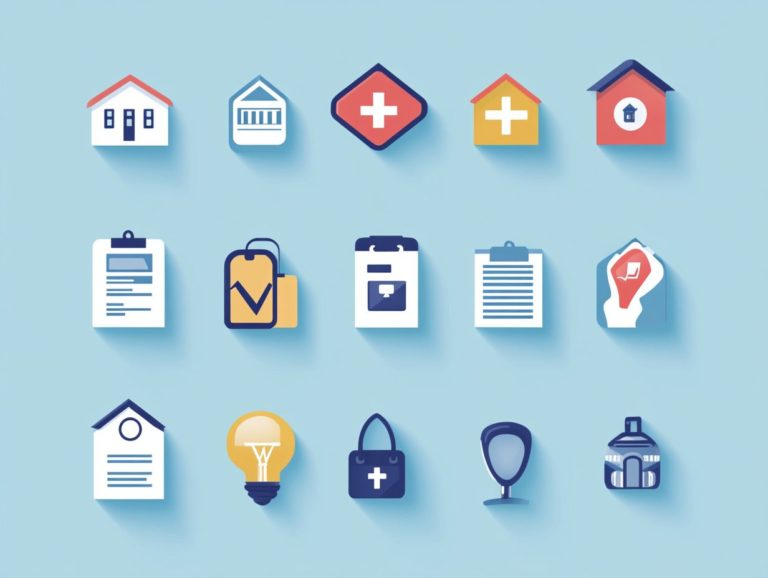Financial Planning for Freelancers Transitioning from Full-Time Employment
Freelancing offers remarkable freedom and flexibility, but it also presents unique financial challenges that can catch many freelancers off guard. Transitioning from stable salaries to variable income, managing taxes without an employer’s assistance, and planning for the future without a matched retirement account necessitates careful planning and adaptation.
This article outlines essential steps freelancers can take to assess their financial situation, create a budget that accommodates variable income, and establish realistic financial goals. This article also covers tax obligations and health insurance as freelancers transition from full-time employment to their new careers.
Contents
- Key Takeaways:
- Assessing Your Current Financial Situation
- Creating a Budget for Freelance Income
- Setting Financial Goals and Saving for the Future
- Managing Taxes as a Freelancer
- Insurance and Retirement Planning for Freelancers
- Tips for Navigating the Transition from Full-Time Employment
- Frequently Asked Questions
- What is financial planning for freelancers?
- Why is financial planning important for freelancers?
- What should freelancers focus on when planning their finances?
- How can I create a budget for my transition to freelancing?
- Should I consider building an emergency fund before transitioning to freelancing?
- How can I manage taxes and retirement savings as a freelancer?
Key Takeaways:
- Understand the unique financial challenges of freelancing, including irregular income and how taxes work for freelancers.
- Create a budget specifically for freelance income and consider saving for the future through investments and retirement plans.
- Assess your current financial situation and plan for the financial changes that come with transitioning to freelancing.
Understanding the Unique Financial Challenges of Freelancing
Freelancing presents unique financial challenges that can be effectively managed through proper financial planning. The primary challenge freelancers face is the uncertainty of income, which can be especially stressful for those new to the independent lifestyle. This uncertainty often results in a lack of financial stability.
Freelancers also encounter different tax responsibilities compared to those with steady employment, adding to their financial concerns. Techniques such as maintaining a separate savings account for taxes and allocating a percentage of each payment to that account can be beneficial.
Unlike traditional employees with set schedules, freelancers must establish their own routines to achieve a balance between work and personal commitments. Creating a timetable allows freelancers to designate specific times for work and personal activities, which helps manage the emotional highs and lows that can arise from client feedback, work volume, and deadlines.
Assessing Your Current Financial Situation
Evaluating your current financial situation as a freelancer is essential for building a strong foundation for future stability and growth. This process involves reviewing your income streams from various projects and clients, as well as assessing your office expenses and other costs associated with self-employment.
Understanding your financial health will allow you to budget effectively and align your skills with market demands. This awareness enables you to adapt to emerging needs and foster a sustainable freelance career.
Evaluating Your Income and Expenses
Tracking your income and expenses is a crucial step toward achieving financial security as a freelancer. Identify and monitor all expenses related to your freelance work, such as office costs, health insurance, and retirement savings, alongside the income received from various projects and clients.
This preparation will help you manage unforeseen expenses and taxes during tax season. By utilizing specific tools, such as accounting software like QuickBooks or simpler apps like Mint, you can streamline the process of logging and categorizing every transaction.
Proper documentation not only helps you identify spending patterns but also facilitates tax submission when the time comes. By maintaining accurate records, freelancers can develop financial planning skills that ease the burden of unexpected expenses. Regularly tracking income and expenses promotes a proactive approach to financial management.
Don’t miss these important insights! Start today to secure your financial future as a freelancer!
Creating a Budget for Freelance Income
Establishing a budget for freelance income is vital for financial stability. Freelancers often face income fluctuations, so it’s essential to create a budget that tracks irregular earnings and expenses.
A well-structured budget helps with tax planning and enables freelancers to pursue projects that align with their skills and interests while maintaining a flexible schedule.
Tips for Budgeting with Irregular Income
Budgeting with irregular income can be challenging for freelancers. Implementing these strategic tips can lead to greater income stability.
- Baseline Budget: The first step for freelancers is to create a baseline budget based on the minimum income they expect to earn.
- Automatic Payments: Set up automatic payments for unavoidable expenses, such as rent and insurance, to ensure they are never missed.
- Create a Savings Buffer: Establishing a savings buffer can help manage income fluctuations since project-based income is inherently inconsistent.
- Track Income and Expenses: Keeping a detailed record of income and expenses helps freelancers understand their financial situation, informing more accurate budgeting.
- Regular Budget Review: After completing major projects or taking on new contracts, review and adjust budgets as needed.
- Savings Account: Set aside a fixed percentage of each paycheck into a separate account to create a buffer that serves as an emergency fund during months with insufficient income.
Follow these steps to take charge of your finances now! You’ll reduce stress and boost your productivity.
Setting Financial Goals and Saving for the Future
Setting financial goals and saving for the future is crucial for freelancers. It provides financial security and helps them achieve personal aspirations.
Freelancers should prioritize retirement savings and develop plans specifying how much income to set aside for future use. Establishing clear financial goals creates milestones that guide spending and saving habits. This approach enhances financial security despite income unpredictability.
Importance of Saving and Investing as a Freelancer
Saving and investing as a freelancer is crucial for establishing a financial safety net and ensuring long-term security. The uncertain nature of freelancing means individuals must take full responsibility for their financial future.
This responsibility requires effectively navigating various saving strategies and investment opportunities. Selecting the right options—such as high-yield savings accounts, a mix of different investments to mitigate risk, and retirement accounts that aid in future planning and offer tax advantages for the self-employed—plays a significant role in a freelancer’s success.
Creating a business safety net through an emergency fund and insurance serves as a buffer against unforeseen circumstances. By implementing these proactive financial planning strategies, freelancers can enhance their financial stability and thrive in an unpredictable work environment.
Managing Taxes as a Freelancer
Freelancers must recognize the importance of taxes and be aware of their various tax obligations to manage payments effectively. It is essential to understand income tax regulations, set aside funds for quarterly taxes, and maintain accurate records of income and expenses to comply with IRS requirements.
Due to the complexity of the process, many freelancers seek professional assistance during tax season to maximize deductions and minimize tax liabilities.
Understanding Tax Obligations and Deductions
Understanding tax obligations and deductions is vital for freelancers. It helps them stay compliant while minimizing tax liabilities. Freelancers have specific income tax requirements. They must track their income and eligible deductions carefully, such as expenses related to office supplies, health insurance, and training and development.
By familiarizing themselves with rules from the IRS, freelancers can better prepare for tax season and make informed financial decisions. Effective record-keeping is critical for freelancers to safeguard against potential audits and ensure accurate claims for deductions.
Unexpected expenses, such as emergency repairs or new software needed for client projects, can arise at any time and may also be tax-deductible. By understanding these financial obligations, freelancers can develop a well-structured financial plan that improves budgeting and cash flow management.
This proactive approach can lead to greater financial security, ensure compliance with IRS rules, and provide peace of mind, allowing freelancers to focus on their creative work.
Insurance and Retirement Planning for Freelancers
Insurance and retirement planning are essential for freelancers. They provide financial stability and protection against unforeseen events. Unlike traditional employees, freelancers must independently secure health insurance and actively manage their retirement savings through accounts like IRAs or solo 401(k)s.
By carefully evaluating insurance options and creating a robust retirement plan, freelancers can protect their financial future against the uncertainties of self-employment.
Options for Health Insurance and Retirement Savings
Freelancers have various options for health insurance and retirement savings that can significantly impact their financial stability. Health insurance can be obtained through private plans, the ACA marketplace, or professional associations. Retirement savings can be organized through accounts like Roth IRAs and solo 401(k)s.
Explore these exciting options today! Understanding the nuances of each choice is crucial, as selecting the right health insurance can greatly influence out-of-pocket costs and the potential for overwhelming medical expenses.
For example, private plans often offer flexibility but may come with higher premiums. In contrast, the ACA marketplace provides subsidies that make it a more budget-friendly option, although coverage may vary.
Regarding retirement accounts, solo 401(k)s allow for higher contribution limits, promoting greater savings. However, they require more administrative tasks compared to simpler Roth IRAs. Therefore, making informed decisions about these financial tools is essential for maintaining both health and retirement security.
Transitioning from full-time work to freelancing requires careful planning and flexibility. This adaptability is crucial to effectively manage the financial changes involved. One of the most common challenges faced during this shift is the emotional adjustment to new work methods and the uncertainty of reliable project income.
Freelancers who were formerly employed full-time can leverage their skills to build a successful freelance career. Utilizing networking opportunities and establishing direct relationships with clients will further enhance their chances of success.
Preparing for the Financial Changes of Freelancing
Preparing for the financial changes associated with freelancing is essential for achieving long-term success and stability. Getting ready means knowing how your income can change and creating a budget that accommodates shifting financial landscapes.
By prioritizing income stability and developing strategies to maintain a healthy work-life balance, freelancers can confidently tackle these changes and ensure their financial well-being.
To thrive in this dynamic environment, freelancers should regularly assess their income sources and allocate funds efficiently. An emergency fund is your safety net during tough times, providing peace of mind and reducing stress. Utilizing financial tools and apps to track expenses can simplify budgeting, enabling informed decisions about spending. Emphasizing proactive financial management helps meet immediate needs and fosters a sustainable freelance career that can flourish even amid economic uncertainty.
Frequently Asked Questions
What is financial planning for freelancers?
Financial planning for freelancers is the process of creating a budget, setting financial goals, and managing income and expenses as they transition to freelancing.
Why is financial planning important for freelancers?
Financial planning is crucial for freelancers because it helps them prepare for potential financial challenges and uncertainties that come with becoming self-employed. It also ensures they have a solid financial foundation to support their new career path.
What should freelancers focus on when planning their finances?
Some key elements of financial planning for freelancers include:
- Creating a budget
- Building an emergency fund
- Setting and tracking financial goals
- Managing taxes and retirement savings
How can I create a budget for my transition to freelancing?
To create a budget for your transition to freelancing, start by tracking your expenses and income from your full-time job. Estimate your new expenses and income as a freelancer, adjusting your budget accordingly. It’s important to be realistic and include potential fluctuations in income.
Should I consider building an emergency fund before transitioning to freelancing?
Yes, it is recommended to build an emergency fund before transitioning to freelancing. Ideally, this fund should cover 3-6 months of living expenses to provide a safety net for any financial setbacks or slower work periods.
How can I manage taxes and retirement savings as a freelancer?
As a freelancer, it’s important to set aside a portion of your income for taxes since you are responsible for paying your own taxes. Consider opening a retirement savings account, such as a solo 401(k) or SEP IRA, to save for your future while potentially lowering your tax liability.









